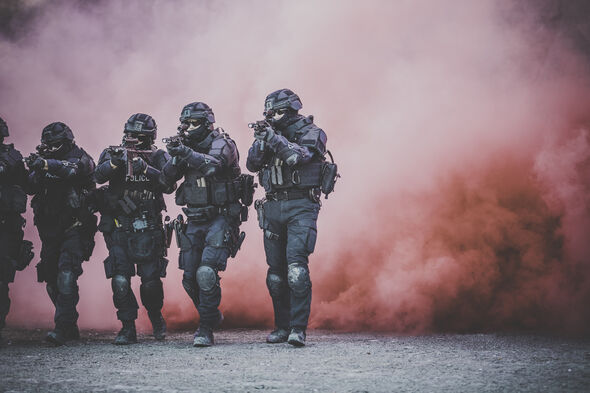Prof Talk | Outsmarting terrorists using mathematical models
The Olympics in Paris are almost here and the snipers are in position. After all, such a huge event involves risks. How can you, as a government, outsmart those with malicious intent? Having armed guards permanently control every street corner is an option, but not a very efficient one. Nor is it always feasible, given all of the other tasks the police has. But you can use smart mathematical models to calculate the most efficient way of deploying available people based on the situation.
Assistant Professor Loe Schlicher (header) creates models that can help the police to deploy protection units as efficiently as possible. To this end, he uses game theory, which we will discuss in further detail below.
Schlicher worked on several types of models. The first one is the ‘line model’, which is particularly useful in a big busy street such as the Ramblas, at a marathon, or on or along a river. The latter would come in handy in Paris, as the opening ceremony of the Olympics will take place at the Seine river, in the form of a boat parade along a four-mile route.
With hundreds of thousands of spectators, this is a situation in which you can imagine plenty of incidents. In some places, a relatively large number of spectators will accumulate, for example where bleachers have been erected or where bridges span the Seine. This is relevant input you can enter into the model.
Rapid Response Teams
Among other measures, the French government will deploy Rapid Response Teams (RRT) during the Olympics, which are markedly different from the RTT cars going around the TU/e campus to provide first aid and the like. The RTT of the police are special, heavily armed intervention teams that can respond quickly in case of a terrorist attack. The question is what the optimal location is for these teams. Schlicher’s model can answer this question very precisely.
What’s innovative about his models is the fact that they take the strategic behavior of opponent(s) into account. “If security is always positioned in location A, an attack is likely to happen in location B, and vice versa. In other words, you have to be smart about the fact that opponents observe and make choices based on these observations. This is exactly what my models take into account, by using game theory.”
Looking at the Olympics, Schlicher thinks security services could use the model to deploy units in Paris, “following careful calibration and keeping in mind other safety risks of course.” It should be noted that his involvement in the Paris operation hasn’t been requested (yet). But it’s an example of the potential practical application of his model.
Models based on game theory
Game theory should be seen as a method to analyze people’s strategic behavior and distill optimal strategies. Schlicher gives an example: “Take the murder of Peter R. de Vries. This was a premeditated crime. The past has shown that opponents observe people and use this information to make strategic choices to their advantage. This is an aspect that is fully taken on board by game theory. You can then combine other intelligence and my models to calculate where and when you need security, thereby outsmarting opponents.”
Privacy
Schlicher is closely following the developments in Paris. It appears as if a very elaborate security campaign has been launched there in the run-up to the Olympics, but this may compromise people’s individual privacy, Schlicher thinks.
“Not only do we see ample employment of police, but also the placement of a huge number of extra cameras. Will all of those be taken down after the Olympics? I wonder. And you can only access certain neighborhoods with a QR code proving you live there or have another valid reason for being there. This is not my field, of course, but I do know that maximum safety also has negative effects on privacy and that’s also something we should be aware of.”
NWO VENI
Schlicher had already received a VENI grant for his research into the positioning of Rapid Response Teams. But now he has been awarded another 30,000 euros through an NWO Impact Explorer grant, to validate developed models in practice.
The extra grant is pretty unique: only people with a VENI, VIDI, or VICI can apply for one. Many of them do, but only few are successful. Schlicher takes a lot of pleasure in his work, in any case. “Making the Netherlands a little bit safer is something I love to do.”
Naval Research Logistics
Schlicher’s work was recently published in the eminent journal of Naval Research Logistics. The article assesses different theoretical scenarios, revealing that Rapid Response Teams shouldn’t always be positioned in ‘hot spot’ locations, as this may cause poor security at other locations, making them interesting for more strategic opponents. For the opening ceremony, this could imply that the place where the most people accumulate isn’t always under surveillance of a team.
![[Translate to English:]](/fileadmin/_processed_/e/c/csm_BvOF_2024_0704_AAM_Loe_Schlicher_67ab5da256.jpg)



Discussion